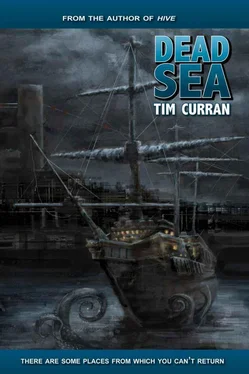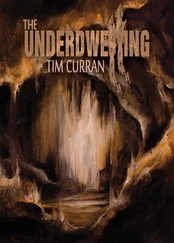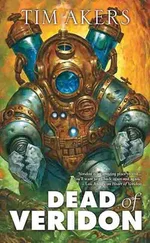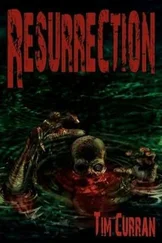Tim Curran - Dead Sea
Здесь есть возможность читать онлайн «Tim Curran - Dead Sea» весь текст электронной книги совершенно бесплатно (целиком полную версию без сокращений). В некоторых случаях можно слушать аудио, скачать через торрент в формате fb2 и присутствует краткое содержание. Жанр: Ужасы и Мистика, на английском языке. Описание произведения, (предисловие) а так же отзывы посетителей доступны на портале библиотеки ЛибКат.
- Название:Dead Sea
- Автор:
- Жанр:
- Год:неизвестен
- ISBN:нет данных
- Рейтинг книги:4 / 5. Голосов: 1
-
Избранное:Добавить в избранное
- Отзывы:
-
Ваша оценка:
- 80
- 1
- 2
- 3
- 4
- 5
Dead Sea: краткое содержание, описание и аннотация
Предлагаем к чтению аннотацию, описание, краткое содержание или предисловие (зависит от того, что написал сам автор книги «Dead Sea»). Если вы не нашли необходимую информацию о книге — напишите в комментариях, мы постараемся отыскать её.
Dead Sea — читать онлайн бесплатно полную книгу (весь текст) целиком
Ниже представлен текст книги, разбитый по страницам. Система сохранения места последней прочитанной страницы, позволяет с удобством читать онлайн бесплатно книгу «Dead Sea», без необходимости каждый раз заново искать на чём Вы остановились. Поставьте закладку, и сможете в любой момент перейти на страницу, на которой закончили чтение.
Интервал:
Закладка:
He flipped himself over the railing, hands pulling on him and then he was up, too.
The teak decks were filthy with dried mud and sediment, the husks of dead crabs and bony fishes protruding obscenely. The masts were bowed and swaying like ancient oaks, their wood discolored from seawater and advanced age. The sails hung in ragged flaps, stained gray with mildew, great lurching holes eaten in them. They looked to be made of graying, threadbare cheesecloth. From the mizzenmast aft to the foremast, all the sails drooped like moldered shrouds, ripped and dangling in ribbons. Most of the stays had rotted away, the jibs gone entirely. Drooping clots of seaweed and webs of fungi were tangled in what remained of the rigging, knotted around mastheads and yards, festooned like cobwebs over the mainsail boom. From forepeak to stern, the Lancet was a dead and decaying thing exhumed from a muddy grave, dripping with slime and netted with fungi and assorted unpleasant growths.
Everything just stank of brine and age and moist corruption.
As George and the others moved, those bleached, filthy decks creaked beneath them and the masts groaned overhead like they might fall at any moment. The main cabin was covered in a growth of something like yellow moss. There were huge tarnished kettles in the bows and behind the foremast was a large, imposing naval gun that was green with age. A rope of tangled fungi drooped from the barrel like it had vomited out its insides.
But these were things they expected, what they didn’t expect they found at the quarterdeck.
Something like wagon wheels were set upright and nailed to the bulkheads with rusty flatnails. And on them, spreadeagled, were scarecrows shackled down. Except they weren’t scarecrows, but the mummies of men… husks covered in leathery hides that had erupted open in innumerable places to reveal staffs and baskets of bone. Their faces were skulls set with membranes of skin, jaws sprung open. Tendrils of fungi knotted them up, hanging off their ribcages and ulnas and mandibles in threads and narrow intersecting ropes.
“Jesus,” Menhaus said. “What… what is all this?”
“You tell me,” George said.
Because it wasn’t just at the quarterdeck, but everywhere… the Lancet was a mausoleum. There were bones scattered everywhere, some attached and other just flung about like the scraps from an ogre’s meal. Skeletons were hung in cages suspended from the yards and in makeshift gibbets that you had to duck under. There were others lashed into the rusting sail hoops on the mainmast, leering down with grinning faces and empty eye sockets. What might have been either the remains of their clothing or rags of flesh dangled obscenely from them. Yes, everywhere, morbid shadows and grisly deathmasks peering out, riven agonized faces boiled down to bone and embalmed stick figures that looked much like cobwebbed death angels from a churchyard.
Menhaus tried to back away from it, but the dead were at every turn. He stumbled over a mortuary heap of yellowed, jawless skulls and let out a high little scream.
And it was too much. Just all too much.
There were grated hatchways set along the decks and under them, cramped little cells that couldn’t have been more than three-feet high. And in them… bones. Dozens and dozens of skeletons crowded and piled and tangled together. Had to be hundreds of them that looked to be mancled with shackles and leg irons. Ossuary pits. But it was more than that, for as Cushing shined his flashlight down into one of those death pits, he could clearly see something… incredible. The skeletons were not just crowded and intermeshed down there, but horribly charred as if they’d been burned. And they looked… melted. Yes, dissolved and fused together as if dunked in some sort of acid.
What kind of heat could possibly melt bones together?
“This is fucking insane,” George said. “A prison ship or something.”
But Cushing didn’t seem convinced. “I think it’s worse than that.”
There was a sudden creaking just beyond the aftermast and a voice said, “A slaver. This was a slave ship.”
George almost fell out of his skin.
A bent-over, emaciated man with long white hair and matching beard stepped out. His face was dirty, lined like old sandstone.
“Dr. Greenberg, I presume,” Cushing said.
26
“It was, of course, what the ONR had us doing with Project Neptune,” Greenberg told them. “We were studying electromagnetic gravitation. Trying to duplicate, under laboratory conditions, aberrant electromagnetic storms. Creating magnetic, cyclonic storms which would in turn, we thought, open a magnetic vortex that was self-augmenting for the purposes of interdimensionl transition. Do you see? That’s what the Navy had us doing. Creating a sort of electromagnetic tornado which is about as close to a black hole as you can get under controlled conditions.”
Greenberg had been talking non-stop.
God knew how long it had been since he talked to anyone and he was certainly making up for it now. The first thing he told them about was the Lancet, which was an illegal slave ship bound from the Gold Coast of Africa to Virginia… except somewhere in the Sargasso Sea, fate intervened and the ship ended up here in Dimension X. Its captain, a brutal fellow by the name of Preen, used his slaves as sacrifices to the entity, the Fog-Devil.
“But eventually, much as on the Cyclops and the Korsund, this creature, this Fog-Devil as you call it, began taking lives and minds of its own accord despite Preen’s offerings. Its radioactive aftermath must have killed everyone eventually, even Preen.”
He said that all he knew was pieced together from Preen’s log and pure speculation. There was no way to acurately know the level of desperation, horror, and madness that had taken this ship and its attendant souls.
Greenberg seemed uncomfortable with the subject of the Fog-Devil, preferred physics.
He said the ONR had been fooling around with high-intensity magnetic fields for years, trying to create the sort of pulsating or vortexual field that occurred randomly and naturally in the Sargasso Sea/Devil’s Triangle area… with varying results. Sometimes comical and sometimes disastrous.
“What we were doing with Project Neptune and, yes, later privately with the Procyon Project of ours was pretty much based on Einstein’s Unified Field Theory which, as you may know, was the great man’s attempts to explain the underlying unity between electromagnetic, gravitational, and subatomic forces. Einstein never finished it, but many, many others of us have been working to that very end for years. Trying to garner practical, applied results from theoretical ends.”
Basically, he said, the idea he and the others in Procyon were fooling with was that the attraction between molecules could be altered by an ionized field, a force field in TV jargon. This field, essentially, would create a tear in the fabric of time/space and allow the introduction or extraction of matter from another dimension. Essentially, the transference of matter from one spatial universe to another.
“And you did?” Cushing said.
“Yes, we did,” Greenberg said, but did not seem happy about it. “We engineered a generator that did not actually create said vortex or field, but one that, if you knew the location where these sporadic vortices occurred, could more or less force them to open.”
“And it worked and you ended up here?”
“Yes. The generator worked… but the amount of juice it had to cycle to create the field, well, it blew the thing into about a hundred pieces. It went up like the Fourth of July. By the time myself and the others on the Ptolemy got that fire under control, we had been introduced into this place. If you read my letter as you say, you understand that what happens is that the vortex shuttles you into the fourth dimension, then out again into this place which I firmly believe is sort of a fractal.”
Читать дальшеИнтервал:
Закладка:
Похожие книги на «Dead Sea»
Представляем Вашему вниманию похожие книги на «Dead Sea» списком для выбора. Мы отобрали схожую по названию и смыслу литературу в надежде предоставить читателям больше вариантов отыскать новые, интересные, ещё непрочитанные произведения.
Обсуждение, отзывы о книге «Dead Sea» и просто собственные мнения читателей. Оставьте ваши комментарии, напишите, что Вы думаете о произведении, его смысле или главных героях. Укажите что конкретно понравилось, а что нет, и почему Вы так считаете.












